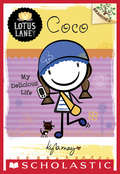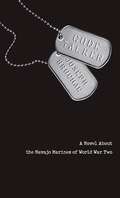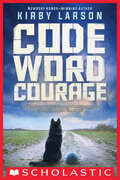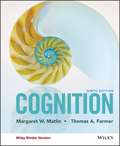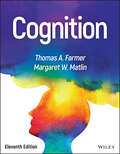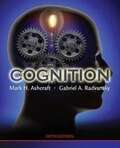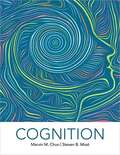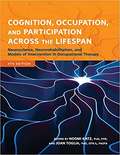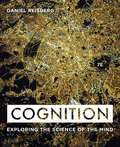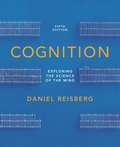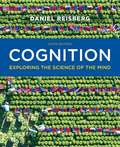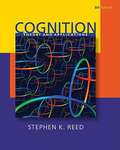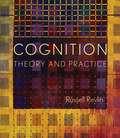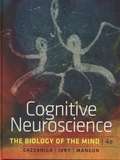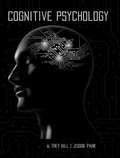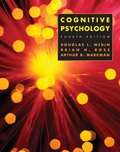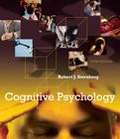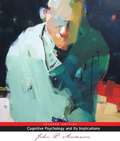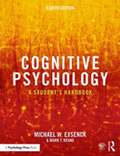- Table View
- List View
Cobalt Blue (Fountas & Pinnell Classroom, Guided Reading)
by Amanda Yskamp Tin SalamunicNIMAC-sourced textbook. Bus to School. Three friends like to make up stories about their fellow passengers on the bus every day.
Cockroach Robots (Environments and Survival)
by Chloë Delafield Ari KrakowskiNIMAC-sourced textbook
Coco's Escape (Fountas & Pinnell Classroom, Guided Reading)
by Craig Orback Estelle ItoNIMAC-sourced textbook. After That Bird! With a flap of her wings, Coco, Aunt Luisa's pet bird, escapes out the window—a window that Pedro opened. Pedro knows he must find the bird before his aunt returns. But it's getting dark, and time is running out …
Coco: My Delicious Life (Lotus Lane #2)
by Kyla MayLotus Lane . . . where friendships bloom!This series is part of Scholastic's early chapter book line called Branches, which is aimed at newly independent readers. With easy-to-read text, high-interest content, fast-paced plots, and illustrations on every page, these books will boost reading confidence and stamina. Branches books help readers grow!The second book in this fresh new series features Coco. Coco LOVES hanging out with her friends, baking delicious cupcakes, and rescuing animals . . . like snails!?! The Lotus Lane Girls organize a cupcake sale to raise money for a veggie garden to help save the snails. Here are some posters Coco and her BFFs make for the bake sale:SLIME MAKES U SMILESNAILS FINISH THEIR VEGETABLESS.O.S.! (Save our Snails!) This book is written as Coco's diary--with fun illustrations and doodles throughout.
Code Blue: A Textbook Novel on Managed Care (Third Edition)
by Richard E. Mcdermott Kevin StocksWhat you are about to read represents a new way of teaching technical material. The book tells the story of a CPA who accepts a consulting job for a community hospital, a job that involves him in romance, mystery, murder, intrigue, and... managed care!
Code Talker: A Novel About the Navajo Marines of World War Two
by Joseph BruchacNIMAC-sourced textbook <P><P>Throughout World War II, in the conflict fought against Japan, Navajo code talkers were a crucial part of the U.S. effort, sending messages back and forth in an unbreakable code that used their native language. They braved some of the heaviest fighting of the war, and with their code, they saved countless American lives. Yet their story remained classified for more than twenty years. <P><P>But now Joseph Bruchac brings their stories to life for young adults through the riveting fictional tale of Ned Begay, a sixteen-year-old Navajo boy who becomes a code talker. His grueling journey is eye-opening and inspiring. This deeply affecting novel honors all of those young men, like Ned, who dared to serve, and it honors the culture and language of the Navajo Indians. <P><P>An ALA Best Book for Young Adults <P><P>Lexile Measure: 910L
Code Word Courage (Dogs of World War II)
by Kirby LarsonFrom a Newbery Honor author, a “heartwarming, genuine story” of a girl’s who bonds with a rescued dog after her brother leaves to fight in World War II (Booklist).Billie has lived with her great-aunt ever since her mom passed away and her dad left. Billie’s big brother, Leo, is about to leave, too, for the warfront. But first, she gets one more weekend with him at the ranch. Billie’s surprised when Leo brings home a fellow Marine from boot camp, Denny. She has so much to ask Leo—about losing her best friend and trying to find their father—but Denny, who is Navajo, or Diné, comes with something special: a gorgeous, but injured, stray dog. As Billie cares for the dog, whom they name Bear, she and Bear grow deeply attached to each other. Soon enough, it’s time for Leo and Denny, a Navajo Code Talker, to ship out. Billie does her part for the war effort, but she worries whether Leo and Denny will make it home, whether she’ll find a new friend, and if her father will ever come back. Can Bear help Billie—and Denny—find what’s most important? A powerful tale about unsung heroism on the WWII battlefield and the home front.“A story of loneliness, loss, friendship.” —School Library Journal
Cognition
by Margaret W. Matlin Thomas A. FarmerMargaret Matlin and new co-author Thomas Farmer's Cognition demonstrates how cognitive processes are relevant to everyday, real-world experiences, and frequently examines how cognition can be applied to other disciplines such as clinical psychology, social psychology, consumer psychology, education, communication, business, medicine, and law. The 9th edition continues to relate cognitive topics to applications in everyday life. This edition is fully updated with research and additional anecdotes. It also includes more research on neuroscience.
Cognition
by Margaret W. Matlin Thomas A. FarmerThe study of human cognitive processes provides insight into why we act or react the way we do. Understanding cognition can help us understand ourselves and others and can even allow us to make educated predictions about future behaviors. In Cognition, 11th Edition, author Thomas Farmer updates this classic text with the latest advances in the field and more in-depth coverage of prominent topics. Expanded and refined throughout, this edition retains the breadth of scope and depth of detail that has made it the go-to text on the topic. Cognition emphasizes the link between conceptual cognitive psychology and real-world experience: case studies, current trends, and historical perspectives merge to provide a comprehensive understanding of core principles and theories.
Cognition (5th edition)
by Mark H. Ashcraft Gabriel A. RadvanskyFor undergraduate level psychology courses in Cognition and Theories of Learning. The psychology of human memory and cognition is fascinating, dealing with questions and ideas that are inherently interesting, such as how we think, reason, remember, and use language. Using a first person narrative, posing direct questions to the reader, and balancing classic research with cutting edge topics, the author draws in the reader and conveys the excitement of the field. Reflecting the increasing use of new technologies to study memory and cognition, Ashcraft and the new co-author, Gabriel Radvansky, continue to integrate sections on neurosciences within individual chapter topics.
Cognition (Sinauer Series)
by Marvin Chun Steven MostChun and Most's Cognition brings new, modern vitality to course materials by presenting exciting findings from cognitive psychology in a way that students can easily grasp. Highlighting everyday-life applications, Cognition motivates students to share in the excitement of cognitive psychology through highly relevant examples, discussions, and demonstrations. Its engaging prose and pedagogical features, such as "Think for Yourself" and "See for Yourself," immerse students in the process of scientific discovery. <p><p> This comprehensive text presents both classic and contemporary research, emphasizing conceptual understanding and lifelong discovery. In addition, the authors integrate exciting new topic areas such as emotion and highlight essential connections to social, clinical, and developmental psychology. A robust multimedia package extends discovery through high-quality demonstrations (Discovery Labs), videos, and quizzing tools to help students succeed. Cognition and its accompanying resources, including the test bank, can be integrated directly into instructors' learning management systems to save time and simplify access.
Cognition And Occupation Across The Lifespan: Neuroscience, Neurorehabilitation And Models Of Intervention In Occupational Therapy
by Noomi KatzOccupational therapy clinicians have the knowledge and skills to address the consequences of cognitive, neurological, and executive dysfunctions that can result from aging, illness, brain injury, stroke, or neurodevelopmental disorder. Practitioners can guide people facing neurological dysfunction to gain the skills they need to participate in family, work, and community life. The fourth edition of Cognition, Occupation, and Participation Across the Lifespan not only updates the information from previous edition, but also has expanded content, including 9 new chapters, a new section on children and adolescents, and content on topics includiong ethical considerations, consumer technologies, and development of cognition and executive functions. Providing intervention models grounded in neuroscience and occupation, this comprehensive new edition of the best-seller examines current evidence and best practices for working with clients across the lifespan. Cognitive models include theoretical basis, evaluation and intervention processes, and evidence to help clinicians teach clients processing strategies that use their assets to achieve successful occupational performance and participation. Chapters include key terms and concepts, learning objectives, case examples, and a summary of key points.
Cognition: Exploring The Science Of The Mind
by Daniel ReisbergOne of the most successful texts ever published on its subject, the new Seventh Edition focuses on the insights and ideas that drive the field and supports student learning. Three exciting features—a new pedagogical program based on the “testing effect,” a comprehensive, author-created instructor’s guide, and ZAPS Cognition Labs—deliver a dynamic, interactive introduction to cognitive psychology today.
Cognition: Exploring the Science of the Mind (Fifth Edition)
by Daniel ReisbergCognition uses the best of current research to help students think like psychologists and understand how cognitive psychology is relevant to their lives. The Fifth Edition offers a streamlined presentation, introduces an attractive new full-color design and an expanded art program, and has been thoughtfully updated with the best of current research.
Cognition: Exploring the Science of the Mind, 6th Edition
by Daniel ReisbergCognition uses the best of current research to help students think like psychologists and understand how cognitive psychology is relevant to their lives. The Sixth Edition offers revised and revitalized ZAPS 2.0 Cognition Labs, enhanced neuroscience illustrations, and a new ebook, providing a highly interactive way for students to learn cognitive psychology.
Cognition: Theory and Applications (8th edition)
by Stephen K. ReedAimed at college undergraduates, this text offers a clear and comprehensive overview of the rapidly evolving field of cognition. Reed (psychology, San Diego State U. ) shows the direct relevance of cognitive psychology to daily activities and the impact of cognitive theories on other fields of psychology. This seventh edition includes new material on current topics such as experience-based versus theory- based judgments of retention, Barsalou's perceptual symbols theory, Kintsch's construction-integration model of text comprehension, and decision frames for risk dimensions. The text has a companion online lab and study guide.
Cognition: Theory and Practice
by Russell RevlinThe author wrote this book with his students in mind so as to address their questions and to challenge them to grasp the methodologies, findings, and applications of basic research.
Cognitive Behavioral Therapy for Eating Disorders: A Comprehensive Treatment Guide
by Glenn Waller Victoria Mountford Rachel Lawson Helen Cordery Hendrik Hinrichsen Emma Corstorphine Katie RussellThis book describes the application of cognitive behavioural principles to patients with a wide range of eating disorders - it covers those with straightforward problems and those with more complex conditions or co-morbid states. The book takes a highly pragmatic view. It is based on the published evidence, but stresses the importance of individualized, principle-based clinical work. It describes the techniques within the widest clinical context, for use across the age range and from referral to discharge. Throughout the text, the links between theory and practice are highlighted in order to stress the importance of the flexible application of skills to each new situation. Case studies and sample dialogs are employed to demonstrate the principles in action and the book concludes with a set of useful handouts for patients and other tools. This book will be essential reading for all those working with eating-disordered patients including psychologists, psychiatrists, nurses, counsellors, dieticians, and occupational therapists.
Cognitive Neuroscience: The Biology of the Mind Fourth Edition
by Michael S. Gazzaniga Richard B. Ivry George R. MangunThe first textbook for the course, and still the market leader, Cognitive Neuroscience has been thoroughly refreshed, rethought, and reorganized to enhance students' and instructors' experience. The table of contents and the chapters themselves have been reorganized to improve the logical flow of the narrative, and the world renowned author team has kept the book fully up to date on the latest research in this fast moving field.
Cognitive Psychology
by Jisook Park W. Trey HillCognitive Psychology by Jisook Park and William Trey Hill
Cognitive Psychology (4th edition)
by Douglas L. Medin Brian H. Ross Arthur B. MarkmanThis coherent overview of cognitive psychology is organized in terms of themes that cut across topic areas. Written by well-known researchers, the book is completely current in describing ongoing controversies in research; it provides summaries of key experiments that distinguish between them; and it encourages the reader to think critically about current research and theories. The focus on the importance of physical and computational constraints on cognition is preserved throughout the book.
Cognitive Psychology (5th edition)
by Robert J. Sternberg Jeff MioSternberg (Yale University) describes the main structures of the human brain, and the basic processes of human perception, learning, memory, language, problem solving, and creativity.
Cognitive Psychology and Its Implications (7th edition)
by John R. AndersonAnderson offers systematic and accessible presentation of the theoretical foundations of higher mental processes, with each important idea made concrete by specific examples and experiments. Focusing on knowledge representation as the central issue of cognition research, the book emphasizes an information processing approach to the field, but offers thorough coverage of the cognitive neuroscience approach as well (extensively updated for this edition). Reflecting the evolution of current research, the new Seventh Edition looks closely at the dramatic contributions of cognitive neuroscience to the understanding of cognitive functions. New coverage, new color insert, new pedagogy, and other content and format innovations, make this definitive new edition the most student-friendly yet.
Cognitive Psychology: A Student's Handbook
by Michael W. Eysenck Mark T. KeaneThe fully updated eighth edition of Cognitive Psychology: A Student's Handbook provides comprehensive yet accessible coverage of all the key areas in the field ranging from visual perception and attention, through to memory and language.

